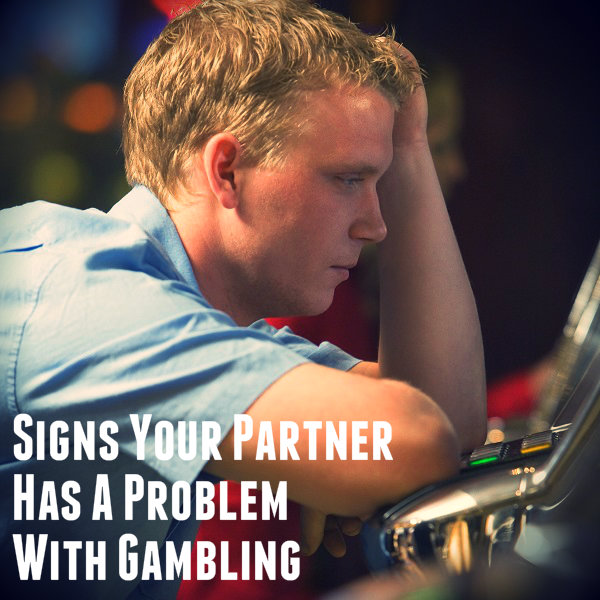Is Your Partner A Compulsive Gambler?
Gambling can be a fun, and sometimes profitable pastime, but it is an activity that can easily spin out of control. It goes by many names: compulsive gambling, problem gambling and pathological gambling. Whatever you call it, gambling addiction is a serious problem that can lead to severe negative consequences.
Signs And Symptoms That Your Partner Is A Compulsive Gambler
If you suspect that your boyfriend or husband has a problem with gambling, you should learn to recognize the signs of an addiction and sit him down for an important conversation about slowing down or getting help.
Early Signs Of Problem Gambling
No addiction starts out at full speed. If your partner has a problem with gambling it probably started out innocently enough. Maybe he had a big win at a casino trip and wanted to keep trying to win again. Maybe he started playing online poker after work to unwind and now can’t stop.
 If he is in the early stages of compulsive gambling, you have a good chance of convincing him to make some changes. Early signs and symptoms of gambling include:
If he is in the early stages of compulsive gambling, you have a good chance of convincing him to make some changes. Early signs and symptoms of gambling include:
- A preoccupation with gambling.
- Lying about time spent gambling or amounts of money lost.
- Gambling to soothe negative emotions such as stress, depression or anxiety.
- Cutting out other interests and hobbies in favor of gambling.
- Gambling in spite of negative consequences, such as big losses or arguments about time spent gambling.
- Trying to cut back on gambling time, without much success.
Symptoms Of A Gambling Addiction
The early signs of a gambling problem may be hard to recognize or pin down. They may be mild enough that you and your partner are able to deny that there is an issue. If you don’t confront the problem you could be facing a worsening obsession with gambling and even an addiction or a case of pathological gambling. Here are some signs that your partner has a serious problem with gambling and needs help:
- He feels restless, irritable and anxious when he can’t get to the casino or to an online gambling site. These are symptoms of withdrawal and a sign of a behavioral addiction.
- He has developed a tolerance. This means that his usual time spent gambling doesn’t feel like enough anymore. He needs to spend more and more time gambling to feel good.
- He is experiencing serious financial setbacks because of gambling and yet continues to do it. A hallmark of any addiction is continuing in the face of serious negative consequences. For gamblers, this usually means losing a lot of money. He may even lose his job because of missed time or gambling online while at work.
- He takes extreme measures in order to gamble more. This may mean stealing to fund his habit or taking out big, risky loans.
- He experiences manic episodes when winning and severe depression when losing. His emotions are deeply tied to his gambling.
What To Do If You Believe Your Partner Has A Problem With Gambling
Compulsive gambling is a serious problem and is one that can tear relationships apart. If your partner is exhibiting any of the signs of having this problem, it’s time for an important discussion.
Approach your partner with concern and compassion and suggest that he may have a problem. Explain how his gambling is impacting your life and your relationship and offer to help him quit or cut back. If he refuses help or is in denial, don’t give up. Ask other family members or friends to confront him as well and be prepared with options for getting professional help.
Take steps now, before it is too late and your relationship is completely destroyed by gambling addiction.
Do Heroin And Gambling Addicts Share Similar Brain Changes? – Find Out Now
Do You Or A Loved One Need Help With A Substance Or Behavioral Addiction?
Call Us Now To Take The First Step Toward A New Life…You Are Worth It!



